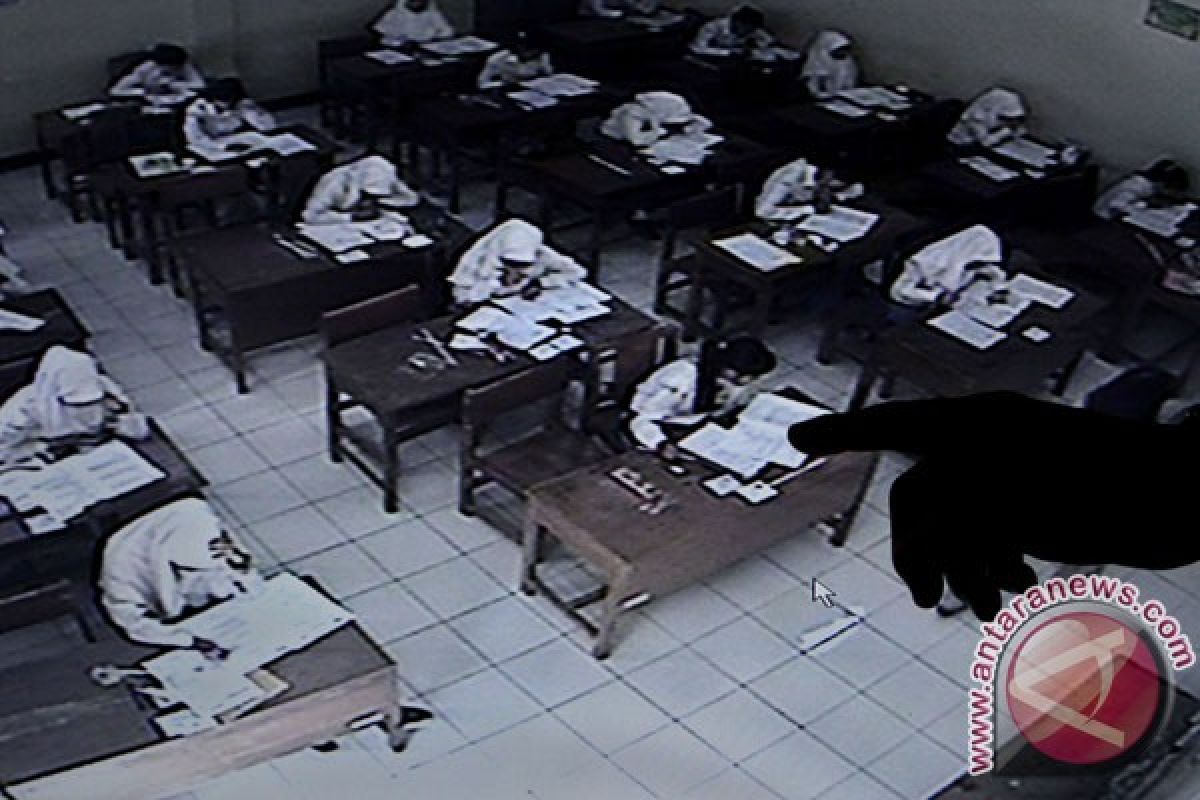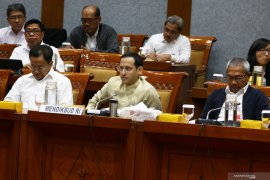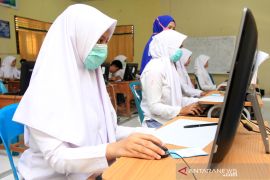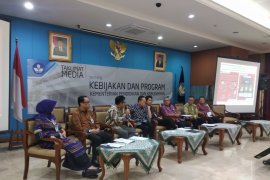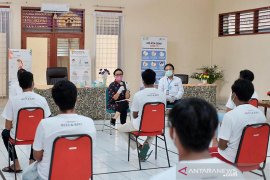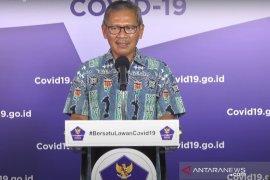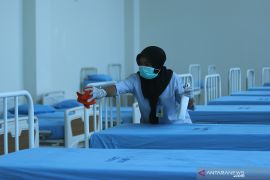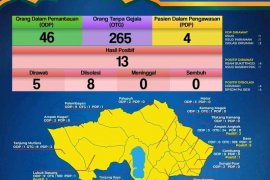The format of the national exams held this year differs from that of the previous years. The results of this year`s examinations will be used to gain acceptance at state universities.Jakarta (ANTARA News) - About 2.8 million students from upper secondary schools (SMA), senior high Islamic schools (MA), senior high vocational schools (SMK), and Packet C students appeared for a three-day long state examinations across the country, on Monday.
President Susilo Bambang Yudhoyono, through his twitter account, wished them luck for the national examinations, which was one of the stages they have to clear before taking up further studies at universities.
The format of the national exams held this year differs from that of the previous years. The results of this years examinations will be used to gain acceptance at state universities.
"You must have high spirit while appearing in the exams," the President noted, expressing hope that students will perform satisfactorily in the national examinations.
"May you get satisfactory results," prayed the President.
The number of SMA, MA, and Packet C students appearing in this years examinations totaled 1,644,713, while the number of SMK students taking the same exam was recorded at 1,184,987.
On the first day of the national examinations, Education and Culture Minister Mohammad Nuh conducted impromptu inspections in several senior high schools to observe the implementation of the exams in Jakarta.
During his visit to SMA 112 secondary school, the minister noted that his ministry had properly distributed all the exam-related logistics. The exam papers will be distributed smoothly.
"We have reports from various regions that they have all received the exam papers," Minister Mohammad Nuh confirmed.
He added that the distribution of the exam logistics began from Jakarta to the provinces, from where they were further distributed to the districts and rayon levels.
The exam papers were then collected by the schools, which are holding the national examinations. In the implementation of the national examinations, the Ministry of Education and Culture is cooperating with higher school institutions to supervise the examinations, the minister elaborated.
The distribution of exam logistics and implementation of the exams in areas affected by natural disasters, such as the Sinabung in North Sumatra and the Kelud area in Java, which were both recently hit by volcanic eruptions, as well as the flood-hit Manado region in North Sulawesi, also ran smoothly.
On the occasion, the minister also assured to take stern actions against those who committed fraud in the national exams.
"You must report it (fraud) if you find fraud or leakage of exam papers," the minister emphasized, while conducting an unscheduled visit to the SMA 112 secondary school.
However, he ensured that it was difficult to leak the question papers, as the officials were carrying out stringent supervision. The distribution of exam logistics was supervised by the police. After all, he noted that in a single classroom, there were around 20 variations of different exam question papers, and so, exam takers cannot use any unfair means.
"The important thing is that we should not think of fraud because it will only smear the image of our education system. Should there really be any leakage of question papers or deceit, you should report it," the minister reaffirmed.
Although the minister has assured that there could be no exam fraud, Indonesian Teacher Associations Federation (FSGI) Secretary General Retno Listyarti claimed that she had received reports on various attempts to commit exam deceits, such as using cell phones to access answer keys during the exam.
The command post of the FSGI also received a report on a syndicate, which was involved in exam answer key transactions in Jakarta, Bandung (West Java), and Surabaya (East Java).
For carrying out its activities, the syndicate applied a multi-level coordination system, starting from classroom coordinators, study program coordinators, school coordinators, regional coordinators, and central coordinators.
"The school managements were not informed about the answer key transactions. We, however, suspect the involvement of the alumni of the concerned schools," Retno Listyarti reported.
The FSGI has received a report about private schools in Medan, North Sumatra, which provided answer keys to its students attending the state examinations.
"They asked their students to come to the schools at 5 a.m. to receive the answer keys for questions in the state examinations. Three high-level private schools had resorted to this act," Retno Listyarti informed Antara when contacted on Monday.
On the first day of the state examinations, the federation also received a report on an exam fraud through the use of cell phones in Jakarta, Garut, and Indramayu, West Java, she added.
The students were caught red-handed turning on their cell phones when they were writing the examination. However, before they could copy the answers, invigilators caught them.
"When the cell phones were checked, the invigilators found answer keys to 20 packets of questions in Indonesian Language, the subject of the examination on Monday," she remarked.
However, this crucial information was not included in the supervision report, as in this case, the students were considered to be the victims, she stated.
In response to the exam fraud, Executive Board Chairman of Muhammadiyah Youth Saleh Partaonan Daulay noted that the government had to find other options to determine if a student is eligible to take up studies at the university level, instead of holding national examinations.
"I think schools can conduct their own examinations to assess whether students are ready to take up graduation. The schools can evaluate and conduct the test autonomously. If a school has the authority, then students, who are eligible to take up graduation studies, can be determined by not just their marks, but by also assessing their character and morality," Daulay remarked.
The questions in the national examinations cannot determine students emotional and spiritual intelligence, and it can only assess students intellectual intelligence.
"A good evaluation had to be holistic and take into consideration the students character, skills, talents, and their ability to adapt to the environment and society. That can only be done by the school," he emphasized.
Saleh Partaonan Daulay pointed out that the national examinations, which are marred by fraud in several regions, cannot benefit and educate the students.
"It was common knowledge that schools always helped students to cheat so that they could pass the exams, as the schools reputation was at stake," he stated.
Therefore, he proposed that the national exams should be replaced with another viable option.
He noted that many quarters were of the viewpoint that the national examinations were not an effective means of measuring the students eligibility.
Besides rampant fraud, the amount of funds spent to organize the national examinations was also too big and failed to reap the required benefits, he claimed.(*)
Reporter: Andi Abdussalam
Editor: Heru Purwanto
Copyright © ANTARA 2014
